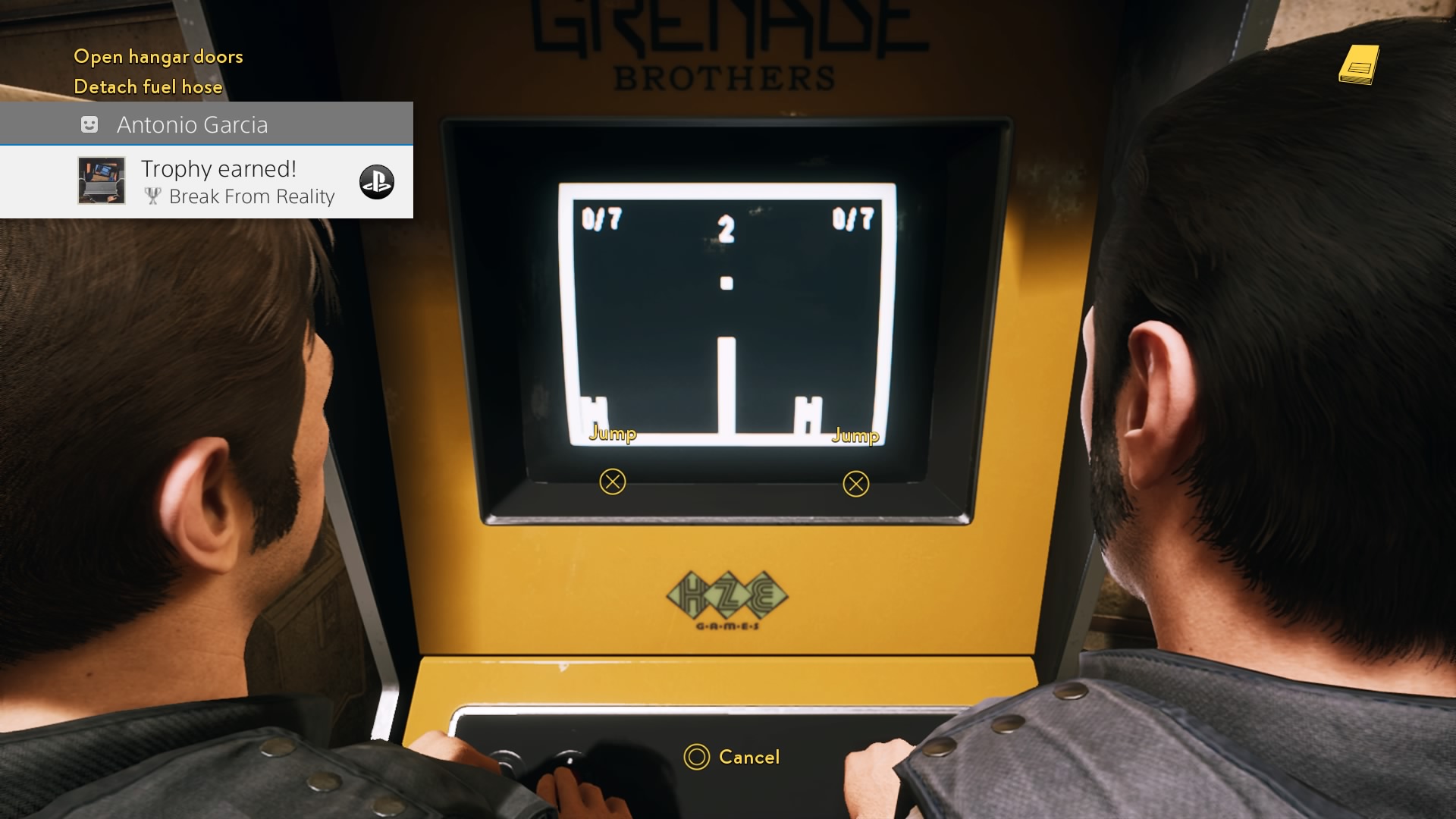A way out
A few days ago I finished playing a videogame called “A way out” with my sister. We both enjoy videogames, having grown up with them, so when we have some time together we enjoy playing multiplayer.
“A way out” was my birthday gift from her, so that we could play it together during summer vacation. It is short enough, so we finished it in a few sessions. There are two main characters, and each player controls one of them. At the beginning of the game we found ourselves in prison, trying to escape. The game strongly reminded us of films like “Escape from Alcatraz” and “The Shawshank Redemption”, and the game often reminds the player of other well-known movies.

But as its predecessor from the same studio, “Brothers: A Tale of Two Sons”, where the game really shines is in the two-player narrative and gameplay. To escape from prison, the player have to collaborate, but they are free to act in their own way. They do things by themselves, but most of the time have to interact, and get to know each other. The players get to really identify themselves with the character they’re playing, which makes the multiplayer experience very worthwhile. I strongly recommend playing the game with someone (rather than by yourself), since it is then that the narrative and gameplay really shine and make it fun.
This has made me think about videogames as a medium again. It is a topic I often like to discuss with my friends, so I wanted to at least write a bit about it here.
Videogames, like cinema, TV, or books, are a very versatile medium, and you can find entertainment, passtimes, fun, and true art in them. Just as in movies or TV, videogames include visuals and music, making them a very sensorial experience, but the way videogames incorporate narrative is, in my opinion, much more powerful than movies or TV.
There are videogames which have a linear narrative, a story they want to tell you. They are very much like movies, maybe more immersive since you get to carry out the actions. In that respect they are also akin to books, in that you insert yourself in the characters and their actions, and get to play out the story (in your mind or in the screen), but the story is fixed, you cannot really change it. I have heard this kind of narrative called “embedded narrative”, because it is placed there (embedded) by the authors whet creating the work.
But games also contain a different type of narrative: “emergent narrative”. This is the story that appears by itself from gameplay, stories not written and preconceived by the author, but rather emerge from the player’s actions. Simulation games, like sports or shooters, have always had this. “You remember that game last year?” “Yeah, we narrowly beat that other team, but we managed, all while a terrible thunderstorm raged!” “What a blast!”
Nowadays, with the power of computers and game consoles, embedded and emergent narratives are being combined in new and interesting ways. “Open world” games are a trend, and a great example of this. The game world is a huge playground for emergent narratives to occur, just from the players interaction with it. But often there are also one or more story threads embedded carefully by the developers, embedded narratives which interact with the player actions and give rise to possibilities which are probably unique to the medium.
Going back to “A way out”, the game makes another combination which is very special to the medium. The narrative is quite linear, and the world not very open, but its richness emerges from the interaction of the players. They are not just two interchangeable agents in the story, existing just to move it forward, but rather the two pieces whose interaction makes the game special and worth playing. These kind of narrative experiences are unique to games, and I think not being able to enjoy them because of preconceived opinions or unfamiliarity with the medium is missing out on some of the more interesting cultural products of our time.
Just as we don’t dismiss all movies or all books because of there being boring blockbusters or insubstantial pulp novels, and we allow ourselves to get entertainment from less “artsy” films and books, we should understand videogames as a medium with a great variety of unique possibilities, and where games range from the bad, to the entertaining, to the artful, just as in any other medium.